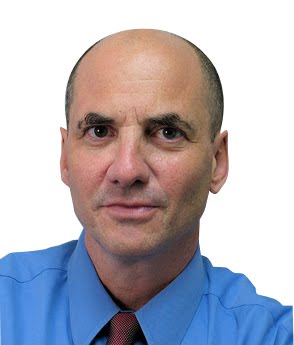
Abe Novick
Special to the Jewish Times
For many of us having grown up during the decade when the Rolling Stones’ “Let It Bleed” was all the rage, the phrase “Let it burn” may not be as familiar.
But some 60 years before that December in 1969 when the English rock band released its immortal album, George Bernard Shaw shook and rattled the rafters on another London stage.
At the height of Act II, in Shaw’s “Caesar & Cleopatra,” Caesar is informed the great library of Alexandria is burning. Caesar — Shaw’s doppelganger — replies, “Let it burn.”
Why would Shaw, a writer and bibliophile, have his emperor utter such a literary blaspheme? It was a new age and a fresh millennia, and Shaw wanted to dispense with the past and usher in a new era of, you got it, change.
Just as the 1960s were an era when the times were a changin’, putting an end to the past was the leitmotif during Shaw’s Fin de si’ecle.
And while our own millennium has already come and gone, we now have to confront much of the pain we were anesthetized to since Y2K.
The Bush years have been like living in a false reality. The Iraq war was fought on false premises. The environment was ignored because the truth was inconvenient. The real estate bubble, which led to this economic meltdown, was driven by overly inflated home prices that were helped in large measure by credit that wasn’t backed up with any real collateral.
Whole industries once pillars of strength and stability have or are buckling and could cave in further — from Wall Street to Detroit to newsprint.
Consequently, we’ve been met with the question: Do we let them go down or save them? Do we let them burn?
Like an angry mob with torches, most Americans are against bailing out these industries and saying they got what they deserved, polls show. CNN/Opinion Research revealed that 77 percent thought a government bailout of financial institutions rewarded bad behavior. Likewise, 61 percent oppose government assistance to U.S. automakers.
Contemporaneous to this current state of social combustion comes Chanukah — the Festival of Lights. The story couldn’t be more apt.
We don’t snuff their flame, but sing songs as we stare at the melting candles, which represent a cleansing and rededication of the temple. We think back to when Judah ordered the Temple cleansed and a new altar built in place of the polluted one.
Shaw wasn’t nihilistic enough to let his Caesar advocate nothingness in the library’s wake. Rather, when the emperor is asked, “Will you destroy the past?” Caesar replies, “Ay, and build the future with its ruins.”
Chanukah, which comes at the end of a year that many will be only too glad to dispense with, is a time for celebration. And even though we may look around and wonder what there is to celebrate, perhaps the answer is… what lies ahead.
We have a new and vibrant president-elect in this country and the first African-American to ever hold that mantle. In January he’ll be inaugurated and already it looks as if the crowd that will gather for that occasion will rival Rev. Martin Luther King Jr.’s “I have a dream” speech that spoke not about the past but the future.
So like King, Caesar, Judah and yes, even like the bad boys of rock ‘n’ roll (who endured more change than any other band of brothers and live on today), let’s continue onward in our quest to build and enlighten.
Let’s gather strength from the past, and while it burns and fades away, look to a brighter future.
Remember, we’re not supposed to blow out the candles, but we’re to behold them and, yes, let them burn.

